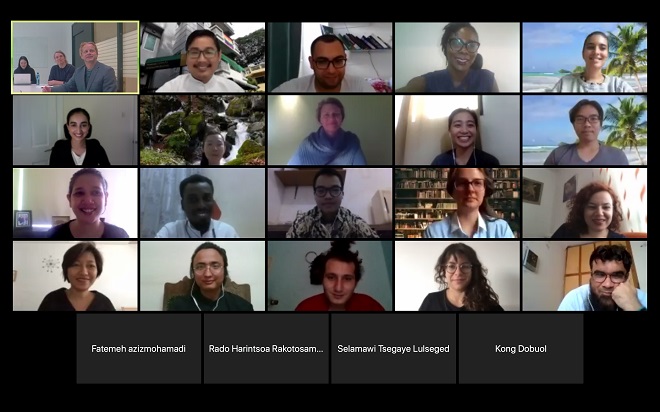The course aimed to provide participants with an intensive introduction to human rights, including the content of various rights, as well as the systems for protecting them at international, regional and national level. It also contained sessions on some contemporary issues of particular relevance.
First time in digital format
When adjusting to the digital format, some features of the course were maintained, while others were changed. The intensive format of the course was kept, with one week to cover a lot of different topics. These topics were generally similar to previous years, with some adjustments.
However the lecture times were strongly reduced, as it was assumed that 7-8 hours of online lectures per day would just be too much. Instead, more time was allocated for online group work.
"Virtual Tours"
Instead of conducting institutional visits in person, participants could see "virtual tours", of Norwegian institutions working with human rights. The electronic format allowed for more institutions than normal to be 'visited'.
One particular challenges was the different time zones of the participants, as some were at least five hours ahead of others. To maintain a good group feeling and a high level of interaction between the participants, there were four hours of obligatory 'core time' everyday, where all participants were present. There group work and some video lectures were more flexible, and could be adjusted to the participants' individual time schedules.
Evaluation from the participants overall positive
The evaluation from the participants were overall very positive, both concerning content and technical solutions. Most believed there was a good balance between group work and lectures, and most participants thought the concept of obligatory 'core time' and 'flexi time' worked well.
The group work was highly appreciated - 89,5% of the participants found the group work exercises to be very useful (the remaining 10,5% found them somewhat useful). The majority felt they had learnt a lot from other participants. In spite of never having met the other participants in person, as many as 84,2% of the participants expected to stay in contact with other participants in the future. Many still expressed regrets for not being able to meet the other participants in person.
The participants were also overall very happy with the various lectures, even though the short duration of the lectures meant that they often were very 'packed' with content. The course breaks in-between sessions were typically eaten up with questions to the lecturers, and many expressed that they would have liked more time for questions.
On the questions on 'course relevance for your professional work' , 52,6% of the participants were 'very satisfied', whereas 31,6% were 'more than satisfied' and 15,8% were 'satisfied'.
It was a great learning experience also for the organisers, who may arrange more electronic courses in the future.
